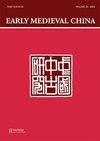“Sturdy Boulders that Protect the Realm” Early Medieval Chinese Thinkers on Decentralized Governance
IF 0.3
4区 社会学
0 ASIAN STUDIES
引用次数: 1
Abstract
The period between the formal end of the Han dynasty in 220 ce and the reestablishment of unified imperial authority in the Sui-Tang period (late sixth century ce) is considered one of political fragmentation and recurrent military conflict. During three centuries, several kingdoms and short-lived dynasties were established and destroyed, either by military conquest or by court intrigues and coups. In this context, many political thinkers of the time looked back to the long rule of the Han as a time of peace and prosperity, and argued that it was the institutions of centralized governance that propped the dynasty’s long-lasting reign. Against this view, a handful of thinkers claimed that the Zhou-style system of investiture offered several advantages to secure the permanence of the ruling house and improve the governance of the realm. Among them, the Wei dynasty thinker Cao Jiong argued that the Zhou system was superior to centralized rule both in moral and military terms, while the Jin dynasty scholar Lu Ji discussed the benefits and problems of relying mostly on kin for controlling the realm. By identifying the key ideas in these writings in relation to the historical context of the early medieval period in China, I will challenge the longstanding assumption that post-Han thinkers advocated for the institutions of centralized administration over those of decentralized governance.“坚固的巨石保护王国”——中世纪早期中国思想家对分权治理的思考
从公元220年汉朝正式灭亡到隋唐时期(公元6世纪后期)重新建立统一的皇权,这段时间被认为是政治分裂和军事冲突反复发生的时期。在三个世纪的时间里,几个王国和短暂的王朝建立和毁灭,要么是通过军事征服,要么是通过宫廷阴谋和政变。在这种背景下,当时的许多政治思想家回顾汉朝的长期统治,认为这是一个和平与繁荣的时代,并认为是中央集权的治理制度支撑了汉朝的长期统治。与这一观点相反,少数思想家声称,周式的爵位制度提供了几个优势,以确保统治的持久性和改善王国的治理。其中,魏朝思想家曹炯认为,周制在道德和军事上都优于中央集权统治,而晋朝学者陆骥则讨论了主要依靠亲属控制国家的好处和问题。通过识别这些著作中与中国中世纪早期历史背景相关的关键思想,我将挑战一个长期存在的假设,即后汉思想家主张中央集权管理制度,而不是分散管理制度。
本文章由计算机程序翻译,如有差异,请以英文原文为准。
求助全文
约1分钟内获得全文
求助全文

 求助内容:
求助内容: 应助结果提醒方式:
应助结果提醒方式:


